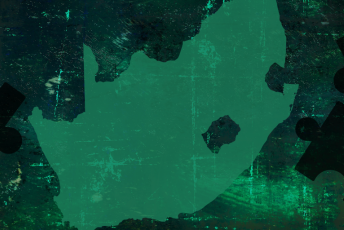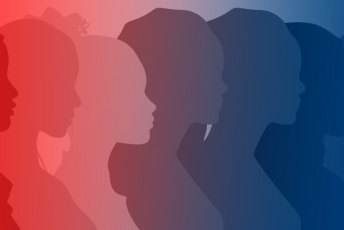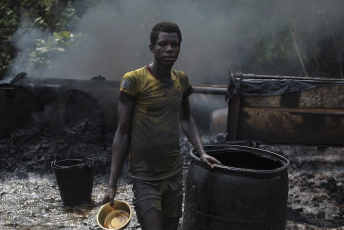In April 2023, Gerhard Ackerman was found guilty of multiple sexual and trafficking in persons (TiP) offences after abusing and renting out minor boys to fellow sexual predators. His co-accused, Paul Kennedy, a well-known advocate who infected some of the victims with HIV, committed suicide.
Their victims were lured with the promise of an income at massage parlours, only to be sexually exploited by high-profile men. This case gives us a glimpse into just one of many manifestations of TiP related to South Africa’s sex industry.
Whether called prostitution or sex work, anyone buying or selling sex is barred from doing so by law. So, too, is TiP, yet both trades are entrenched in South Africa. They also sometimes overlap when people who voluntarily sell sex are targeted for ‘sex trafficking’.
The stigma attached to the sex industry (here referring to voluntary engagement in transactional sexual services), the vulnerability of those working in it and the difficulty in identifying trafficked victims, however, means those in the sex industry who fall victim to TiP may remain undetected and denied the recourse they are entitled to.
The non-governmental organisation (NGO) Sonke Gender Justice argues that ‘distinguishing between sex work and TiP would enable police to respond more effectively to exploitation or coercion – for example, by focusing resources on identifying cases of exploitation.’ Yet TiP and the sex trade are often conflated to the detriment of victims and stakeholders in a position to identify victims and offenders. If victims and offenders are not identified, the trafficking supply chain cannot be broken.
TiP includes delivering, transporting, harbouring, recruiting, selling, exchanging, leasing or receiving someone for the purpose of exploiting them. This is done through, among others, threat, force, fraud, kidnapping, abduction, deception or abusing their vulnerability.
While the purpose behind TiP is always exploitation, motivations differ. Sex trafficking is but one driver; others include forced labour, marriage and organ harvesting. South Africa serves as a source, destination and transit country for victims. However, people do not need to cross borders to be trafficked – they don’t even have to leave their home.
Because traffickers exploit victims’ vulnerability, they often target women, children, refugees and migrants. The 2022 Global TiP Report suggests that most trafficking incidents in Southern Africa, and indeed South Africa, are for sexual exploitation.
How many victims are ‘sourced’ from, or for, the sex industry is however unknown, and identifying victims can be challenging since the distinction between TiP, sex trafficking and even migrant smuggling can be murky. Someone might enter South Africa irregularly, voluntarily engage in the sex trade, and then fall victim to human traffickers.
While there are action plans and policy frameworks to counter TiP in Africa, their implementation remains problematic regionally and in South Africa. South Africa’s 2019 National Policy Framework (NPF) to prevent and combat TiP aims to be a strategic planning tool to secure political and financial support, reduce vulnerabilities to trafficking and ensure early detection of potential or presumed victims.
The NPF acknowledges the importance of multistakeholder cooperation to prevent trafficking and help victims. But it also acknowledges the difficulty in identifying trafficked victims due to the clandestine and corrupt nature of organised crime, fear of reprisal by victims and stakeholders’ lack of awareness.
A new book by Emma van der Walt, founder of the NGO Brave to Love (which works with sex trafficking survivors), documents how victims might not even know they have been trafficked. They are often isolated or have little or no money or forms of communication. Victims might even move around freely but are bound to their traffickers in other ways, such as by threat, psychological manipulation, addiction or having their identity documents or passports withheld.
These characteristics may make the process from voluntarily engaging in the sex industry to being coerced into sexual services difficult to discern.
To address this, the NPF prompted the development of standard operating procedures to identify and assist trafficking victims. It further aims to deliver training and sensitise not only law enforcement and other government entities but also NGOs, social workers, medical personnel, communities, colleagues and potential victims’ clients. Stakeholders interacting with sex workers need to be sensitised to their rights and earn their trust – this allows them to be better equipped to identify potential trafficking.
Although the sex industry is not specifically addressed in the NPF, the standard operating procedures contain indicators of sexual exploitation. Some, however, also apply to the sex industry in general. Indicators include, among others, working in multiple locations, evidence that an individual cannot refuse violent or unprotected sex, being escorted to work, and the inability to speak a local language, yet knowing local terminology related to sex.
Because of this ambiguity, it is crucial that stakeholders ensure that those engaged in the sex trade trust them enough to report exploitation.
The NPF also aims to improve knowledge on TiP due to the lack of reliable, longitudinal data, rendering the true extent of the problem, and typical modus operandi, unknown. One study reported that over 10 800 TiP cases were reported to the South African Police Service between August 2005 and January 2022. Another suggested that 30 000 children alone were trafficked into the sex trade annually. And much of the data comes from international sources, such as the United Nations, which relies on countries’ self-reporting, and the United States. Because South Africa’s official crime statistics do not have a category dedicated to TiP, it is impossible to know its true extent.
The extent and impact of sexual exploitation is also often overshadowed by the ongoing debate between those in favour of or against decriminalising the sex trade in order to safeguard people voluntarily selling sex from abuse. In 2022, South Africa introduced an amendment bill that will decriminalise both buying and selling sex. The bill is being revised to include regulations after concerns were raised regarding decriminalisation without the accompanying legal framework to regulate the trade.
The destiny of this bill and the impact of decriminalisation on the sex industry and TiP remains to be seen. Decriminalisation alone will not address the push and pull factors giving rise to trafficking. It also will not conjure up the ability to regulate a legal sex industry, sensitise law enforcement and ensure they have the capacity to crack down on related TiP, or improve psychosocial aftercare services to survivors to ensure they are not re-victimised. This includes safe accommodation and treatment for substance abuse where applicable.
According to Van der Walt, survivors often face long waiting times to get into rehabilitation programmes and safe houses. The longer they wait, the higher their chance of being re-victimised. Any law enforcement effort, therefore, must be accompanied by well-resourced psychosocial support services.
Legislation has also been shown to be ineffective in countering TiP in general. Legal frameworks, therefore, must be accompanied by efforts to eradicate the structural conditions giving rise to TiP and the sex industry.
Most crucially, as the NPF notes, it must also be accompanied by efforts to increase the ability of stakeholders to identify offenders and victims of TiP in the sex trade, and to support survivors instead of making blanket assumptions about those selling sex.
Dr Carina Bruwer, Senior Researcher, ENACT







